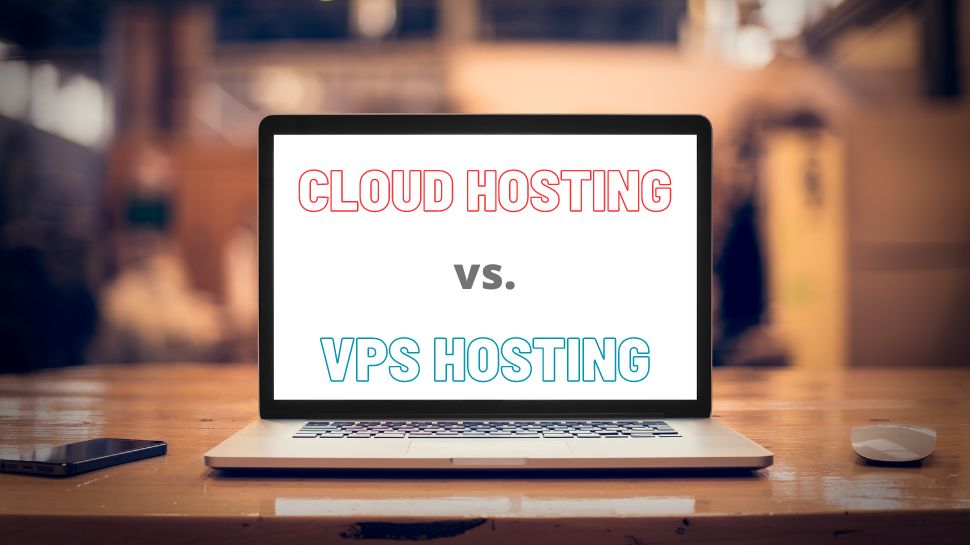Cloud hosting vs VPS hosting: Which one is right for your website?
Two top hosting solutions, but which is suitable for you?

When it comes to the best web hosting, you may be considering cloud hosting or virtual private servers (VPS).
Both services offer you reliable and secure hosting for your websites, but there are important factors that should be considered when making a decision.
This article will explore the differences between cloud hosting and VPS in more detail to help you better understand which option is best for your business.
Reader Offer: Up to 80% off plans
Techradar praises Hostinger for its terrific value and WordPress support. Build your WordPress website or easily migrate your existing one to Hostinger - for just $2.49 per month. Start now.
Preferred partner (What does this mean?)
What is cloud hosting?
Cloud hosting is a computer network that uses multiple connected servers located in different geographical locations. With cloud hosting, the workload is shared across many servers instead of just one.
This means that if one server goes down, the others can still keep the website running without any interruptions or delays.
Plus, you don’t need to worry about downtime when you switch hardware or purchasing additional resources as you scale up. You can simply add more resources as needed on demand or take them away.
What is VPS hosting?
Unlike cloud hosting, VPS hosting utilizes dedicated resources from a single physical server in one location.
Sign up to the TechRadar Pro newsletter to get all the top news, opinion, features and guidance your business needs to succeed!
However, this is changing. Lots of VPS servers are now built on top of cloud infrastructure but it's still basically the same thing. You have your own dedicated server environment isolated from others with its own resources.
VPS servers are ideal for those that need more stability and have higher power requirements such as hosting an ecommerce store or a site that gets lots of visits.
What’s the difference between cloud hosting and VPS?
The main difference between cloud hosting and VPS lies in the infrastructure on which they are built. Cloud hosting operates on a distributed network of servers that work together to deliver resources as needed.
It offers a highly scalable and flexible hosting environment, enabling businesses to quickly scale up or down resources based on their needs. Also, cloud hosting typically comes with automatic failover and redundancy built-in, which ensures high uptime and reliability.
On the other hand, traditional VPS hosting operates on a single server that is partitioned into multiple virtual servers. Each VPS operates independently, with its own dedicated resources, including CPU, RAM, and storage.
While VPS offers more control and customization options than shared hosting, it is limited by the physical resources of the server it is hosted on. Therefore, it is not as scalable as cloud hosting, and you may need to upgrade to a more powerful VPS or migrate to a different hosting solution altogether as your resource needs grow.
Another significant difference between cloud hosting and VPS is pricing. Cloud hosting typically charges you based on usage, which means that you only pay for the resources you consume.
This pay-as-you-go pricing model can be cost-effective for businesses with fluctuating resource needs. In contrast, VPS hosting typically charges a fixed monthly fee, regardless of resource usage, which can result in wasted resources and higher costs for you if you don't fully utilize your allocated resources.

Pros and cons of cloud hosting
One of the most significant benefits of cloud hosting is its scalability. Cloud hosting allows you to scale your resources up or down as needs change, making it an ideal choice for websites that experience fluctuating traffic levels.
Cloud hosting provides high availability of data and resources, as it uses multiple servers in different locations. In case of any failure, another server will take over the workload, ensuring continuous service. This makes it an ideal solution for businesses that require high uptime and reliability.
Another good quality cloud hosting has is flexibility, which allows you to choose the resources you need, such as storage, bandwidth, and CPU power. Additionally, cloud hosting providers offer different pricing models, such as pay-as-you-go or subscription-based, allowing you to choose the most cost-effective option.
However, a downside to cloud hosting is (in some cases) you may experience downtime due to server maintenance, upgrades, technical issues, or connectivity. This can affect the availability of services and may result in lost revenue for you.
With cloud hosting, you may have less control over your servers, as the hosting provider manages the servers and infrastructure. This can be a disadvantage for businesses that require full control over its servers.

Pros and cons of VPS hosting
VPS hosting allows you to have complete control over your virtual space, including the operating system, software, and applications you install. This makes it highly customizable and adaptable to specific business needs.
VPS hosting allows you to easily upgrade or downgrade your resources, including CPU, RAM, and storage, depending on your website's traffic and usage. This type of hosting also offers a higher level of security compared to Cloud hosting, as you have your virtual space and resources, which reduces the risk of other users' actions affecting your website's security.
On the flip side, VPS hosting requires technical knowledge to set up and manage, as you are responsible for configuring and maintaining your virtual space. This can be challenging for users who do not have a technical background or experience in server administration.
VPS hosting also requires regular maintenance and updates to keep the server running smoothly and securely. This can be time-consuming and may require additional resources, such as hiring a server administrator.
Cloud hosting vs VPS: Which one is right for you?
Cloud hosting allows you to easily scale up or down your resources based on your current needs, which can be particularly useful if your website experiences spikes in traffic.
Also, cloud hosting providers typically offer a high level of redundancy and uptime guarantees, which means that your website or application will be available to users around the clock. Also, cloud hosting is less expensive when compared to VPS, especially if you need a lot of resources or require a high level of security.
On the other hand, if you are looking for a hosting solution that offers a high level of control and customization, then a VPS may be the right choice for you. VPS hosting provides you with your virtual server, which means that you have complete control over the operating system and software that is installed on it.
This can be particularly useful if you need to run specific applications or require a high level of customization for your website. However, VPS hosting typically requires more technical expertise than other hosting options, as you will be responsible for managing your server and ensuring that it is secure and up-to-date.
- Here's a list of the best shared hosting providers if cloud or VPS hosting isn't for you
Ruby has been a freelance technology writer for over four years and has a passion for information technology and the Internet in its entirety. She has a wide range of specialities including web hosting, streaming (Firestick, Kodi, and APKs), VPN, information technology, and affiliate marketing. Ruby is a graduate of Bachelor of Science in Commerce from the University of the Philippines, and regularly codes in her free time.
- James CapellB2B Editor, Web Hosting

